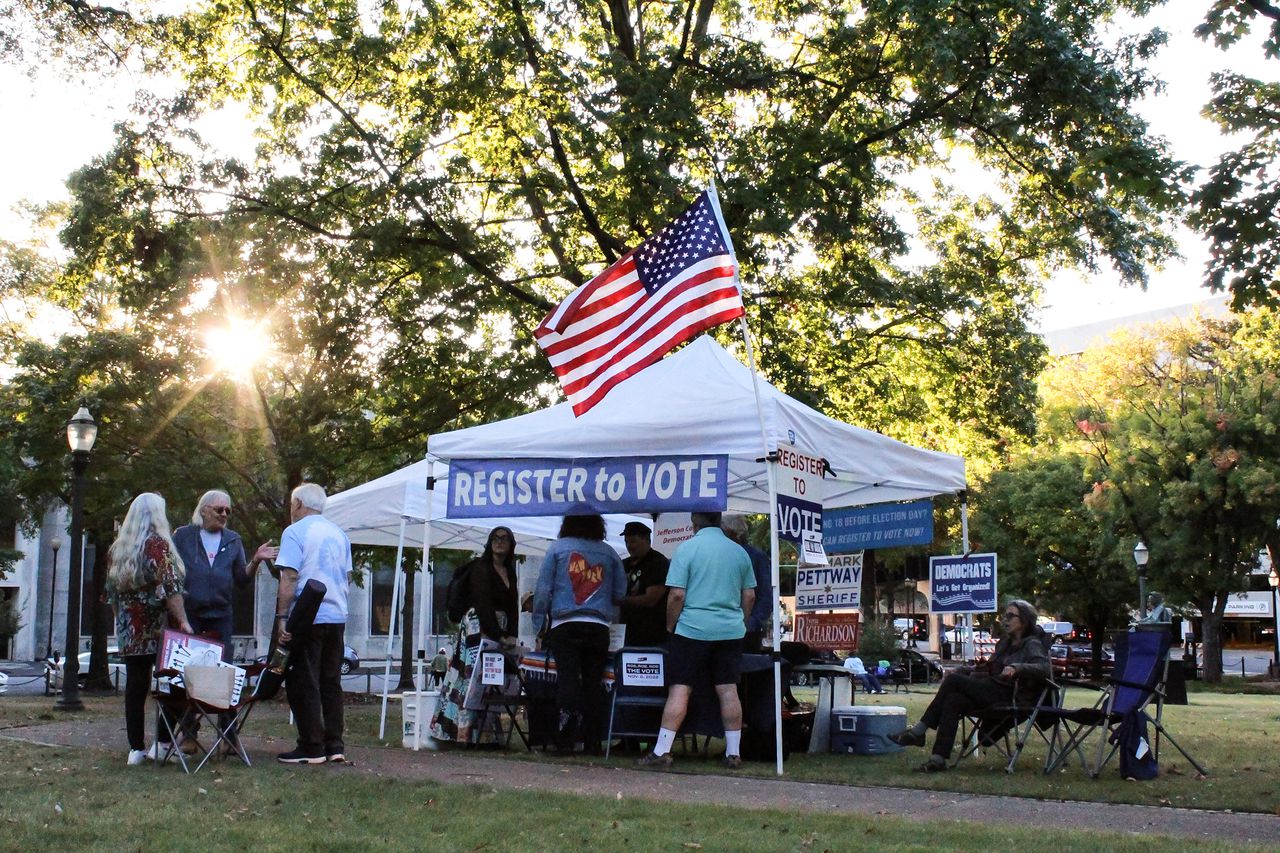Alabama GOP, Democrats cite work with women, ‘record number’ of candidates
In each of Alabama’s 67 counties, more women are registered to vote than men.
October records sent by the secretary of state’s office show that 1,766,087 active registered voters are women, making up 53.4%. Alabama women also are more likely to vote than men – In the 2020 general election, 55.62% of votes in Alabama were cast by women, according to data from the secretary of state’s office.
The November election also will feature two potentially historic races: Alabama will see its first all-women gubernatorial race, and if Katie Britt wins her U.S. Senate race, she would be the first woman from Alabama elected to the position.
“We are excited about the record number of female nominees we have up and down the ballot this year,” wrote Jeannie Negrón Burniston, communications director for the Alabama Republican Party, citing Gov. Kay Ivey, Britt, and other legislative and judicial candidates. “It’s pretty clear our party’s platform resonates with all voters, including the women of Alabama.”
“Some of that may stem from the fact that when you’ve been excluded from rights like the right to vote, you may take it even more seriously,” said Kelly Dittmar, an associate professor of political science at Rutgers University-Camden and the research director for Center for American Women and Politics.
Britt and Ivey are running against Democratic candidates William Boyd and Yolanda Flowers, respectively.
Women in the U.S. historically vote Democratic. But Melissa Blair, an associate professor and department chair of history at Auburn University, said it’s not necessarily a surprise that Alabama has high rates of female voting and a very conservative political environment.
“In the ‘50s and ‘60s, women are at the forefront of this sort of newly developing conservative politics, not as the people running for office, but as the foot soldiers of the movement,” Blair said. “One of the things that conservative politics are focused on is protecting the home, protecting parents’ prerogative. All of that rhetoric that is familiar to us today has been there since the beginning, and is always driven by women.”
It’s rhetoric used by candidates like Britt, who would be the only Republican woman in Congress with school-aged children if she wins office.
In October, Britt called 2022 “the year of the parent,” shortly after condemning “woke ideology” in schools.
“We want them to be taught to love this nation, to stand for the flag, be taught history, be taught math, be taught reading, not to be indoctrinated with woke ideology,” Britt said on America’s Newsroom.
And it’s rhetoric that resonates with potential voters.
At an event held by Concerned Women for America in Hoover Thursday morning, Homewood chapter member LeeAnne Logan said she believes everyone should vote regardless of gender, but she and other women meet monthly and pray about political issues.
“I also feel like women are the backbone of the home, the heart of the home,” Logan said, adding that Alabamians should teach their children conservative values.
Logan said she hopes to see more conservative leadership in Alabama.
“I think we have a tendency to get a little gray, and then even some of the Republicans are not voting as conservatively or biblically as we would like,” she said. “I’m still proud that we are a red state. I just don’t want it turning purple.”
State Democrats also pointed to female candidates running for office, including candidates Lisa Ward and Brenda Cephus, on issues of rural health care, eliminating the grocery tax and improving schools.
“Beyond our candidates, though, Democrats fight for women’s issues, and women’s issues are everyone’s issues. From healthcare to good education to childcare support and equal wages, our party platform envisions a better future for Alabama where we have the freedom to make decisions about our own lives and the means to do so without the interference of politicians in Montgomery,” said Amber Buck, of the Tuscaloosa County Democratic Party.
Kathy Jones, the president of the state chapter of the League of Women’s Voters, said she wished more women would seek office.
“It’s really frustrating because until we start being represented more equitably in the elected offices, then we’re not going to get the protection that we need,” Jones said.
Only 79 women have been elected to a congressional, statewide executive or legislative position in the state’s history, according to the center, including:
- Five female members of Congress,
- Eighteen women who have held a statewide executive office, and
- Two female governors, including Ivey.
Women make up 16.43% of legislative seats, totaling 23 out of 140 lawmakers.
Many other elected positions still primarily have men holding power.
A similar divide exists at the municipal level – Alabama ranks 45th in the U.S. for women in municipal offices, according to CAWP. Only 22.7% of municipal office-holders are women, compared to 77.1% that are men.
Dittmar said organizations like CAWP are working to let women know that their voices are important and to encourage them to get on the ballot.
“I think another form of political participation and influence is thinking about women in the activism space, and advocacy space. And this is where we’ve seen women historically, you know, have the most persistent and significant influences often right outside of the formal political structure, shaping policy and shaping agendas,” Dittmar said. “One thing we also want to watch for is the degree to which we can get women to translate advocacy and activism into candidacy and office holding.”
Midterm elections will occur on Nov. 8. Here’s how you can find your voting precinct and information on absentee ballots.
Sarah Swetlik is a gender and politics reporter at AL.com. Her staff position is supported through a partnership with Report for America. Contribute to support her work here.
